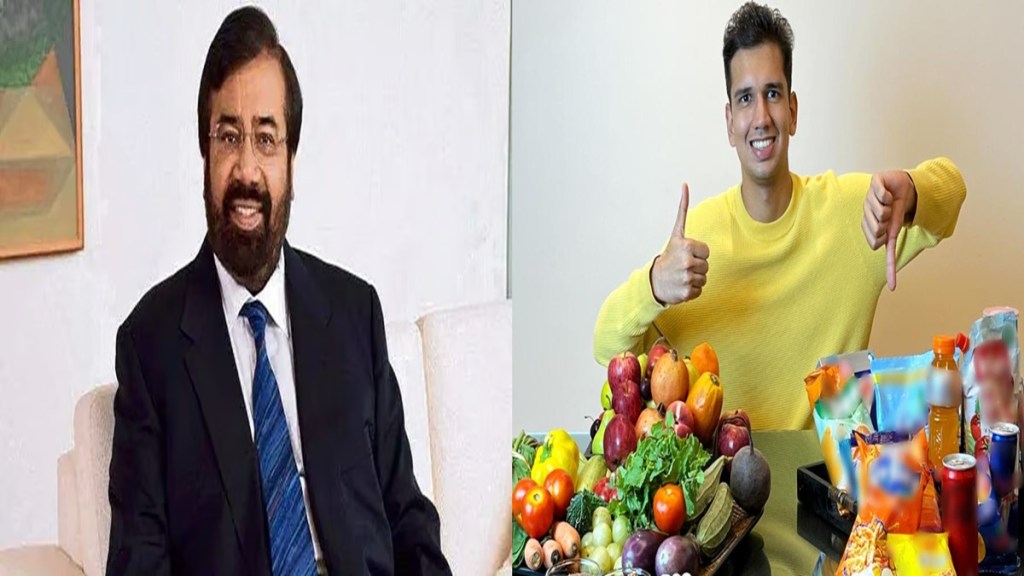Entrepreneur Harsh Goenka shared a video on X which points out some troubling revelations about the practices of food companies. The clip features podcaster Raj Shamani and Revant Himatsingka AKA FoodPharmer. The video uncovers how food companies sometimes deceive consumers, mislead them with marketing tactics, or make questionable choices that affect the quality and pricing of the food we consume.
Many food products carry labels like “healthy,” “natural,” or “organic,” which can sometimes be misleading. For instance, a product might claim to be “low fat,” but it could still be high in sugar or contain artificial additives. This practice can trick consumers into thinking they’re making healthier choices when they’re not.
Surprised at the revelations Goenka says “How our food companies are taking us for a ride! I was truly shocked by these revelations.” The video highlights several examples of deceptive marketing practices by food companies, illustrating how they mislead consumers about the contents of their products. For instance, in a packet of Goodday cashew almonds and cookies, the label claims the presence of almonds and cashews, but in reality, almonds make up only 1.4% and cashews just 0.4% of the pack. Similarly, a whole wheat biscuit pack lists 52% maida (refined flour) and only 19.5% whole wheat, meaning the biscuit contains more maida than whole wheat—defying its “whole wheat” branding.
How our food companies are taking us for a ride! I was truly shocked by these revelations. pic.twitter.com/oRWTeVuYxw
— Harsh Goenka (@hvgoenka) March 19, 2025
The video also reveals that products marketed as containing herbs sometimes have misleadingly small quantities. For example, the pack mentions five herbs, but together they account for only 0.1% of the product. Even more shocking is the Hazelnut Choco Peanut Spread, which is marketed as containing hazelnuts but, in fact, contains no hazelnuts at all—just a flavor designed to imitate the taste of hazelnuts. Furthermore, a bottle of Fresh Tomato Ketchup carries a disclaimer stating that “this is only a brand name/trade mark and does not represent its true nature.”
These examples point to the widespread use of misleading and fake marketing tactics, where companies misrepresent their products to create an illusion of quality, healthiness, or authenticity, ultimately deceiving consumers.
Revant Himatsingka, known online as FoodPharmer, is recognized for his work in promoting consumer awareness regarding the health implications of food products. He critiques popular food items, often focusing on their ingredients, nutritional claims, and transparency. His commentary aims to educate the public about the true nutritional value of everyday food and push for greater clarity in food labeling and health marketing.
One of the notable cases he became involved in was related to Bournvita, a popular nutritional drink produced by Cadbury. Himatsingka raised concerns about the high sugar content in the product and questioned the health claims made by the company. He argued that the marketing of Bournvita as a health-boosting drink was misleading, especially given the product’s sugar levels. His critique sparked a wider discussion about the food industry’s responsibility to provide accurate information to consumers, especially in terms of nutritional content, and encouraged calls for greater transparency in food labeling.

